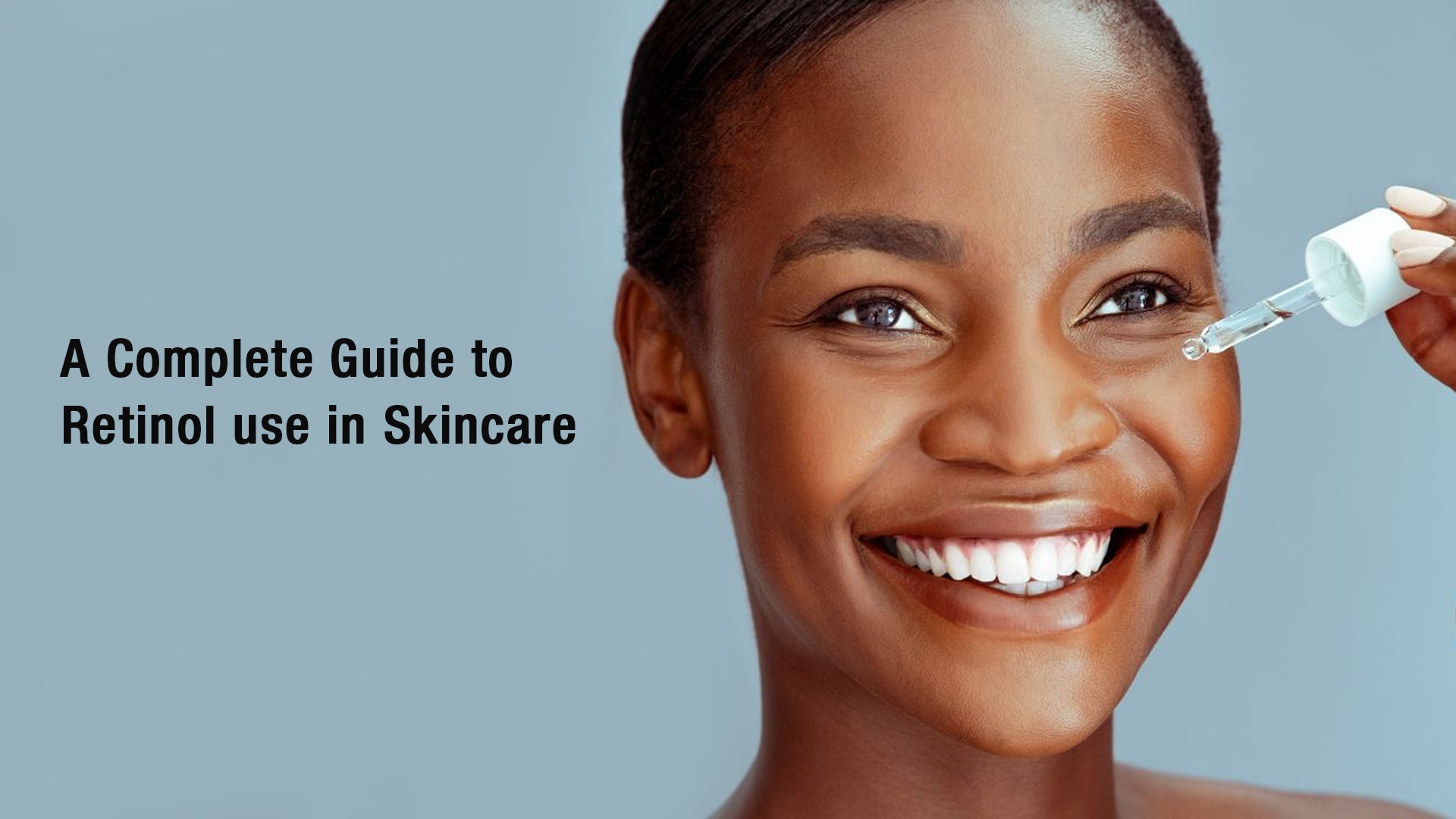A Complete Guide to Retinol Use in Skincare

Type the word ‘Retinol’ on Google and you will be flooded with an overwhelming carousel of products. From creams to serums to cleansers to oils. It’s mind-boggling how one skincare ingredient can create such a storm in the industry. But that’s retinol for you, the diva that makes a great entry!
While some may believe that retinol is a risky ingredient to introduce into your perfectly smooth skincare routine, others swear by its effectiveness in treating problems that were earlier believed to be only ‘managed.’ Oh yes, retinol is known to perform a few wonders of its own! If you are here to find out this and more about retinol, then here is a complete guide to retinol use in skincare.
What is Retinol?
Retinol is a Vitamin A derivative that is known to be highly effective. It belongs to this niche group of Vitamin A derivatives called retinoids and is stable to use topically on the skin. It is also mild enough to be bought over the counter, without a dermatologist’s prescription.
How Was It Discovered?
It all happened at the University of Pennsylvania. The year was 1971.
A famous dermatologist by the name of Dr. Albert M Kligman discovered Tretinoin, otherwise called Retinoic Acid and found it highly effective for acne treatment. Ever since, the deep dive into the world of Retinoids has been mining out many such gems, retinol being one of them. Although it is not as strong as Tretinoin, it has still become the blue-eyed boy of modern skincare.
How Does Retinol Work?
- Retinol has a unique place in skincare.
- Unlike many other products that work on removing dead and upper skin cells to smoothen the surface for mature or acne-prone skin, retinol works by penetrating the dermis.
- It reaches the middle layers of your skin and helps neutralize the free radicals (those pesky destructors that cause aging).
- This helps your skin boost its collagen and elastin production, which results in the natural plumping of the skin to reduce fine lines, wrinkles, and enlarged pores.
- Retinol also has an exfoliating benefit and hence is used to improve skin texture, treat acne and inflammation.
- It also attacks bacteria that cause acne.
Retinol Use in Skincare
- Anti-Aging: Retinol is called a wonder tool in anti-aging. It combats the signs of aging like wrinkles, fine lines, frown lines, sagging skin, age spots, etc.
- Sun Damage: Skin that has seen sun damage in the form of dark spots, pigmentation, etc is also often treated with retinol.
- Acne: Retinol treats acne, scarring, breakouts, bumps, and inflammation to give you a smooth, even skin texture.
- Melasma and Hyperpigmentation
- Bright & Youthful Skin: Retinol reaches the skin on a cellular level to increase its cell turnover. This helps the skin replenish itself faster, and hence look radiant and young.
Slow & Steady
Retinol is a milder, OTC version of retinoid. This is great for your everyday skincare, but at the same time, you must know that retinol use doesn’t give instant or quick results. It’s the tortoise, not the rabbit. Having said that, remember who won the race?
Retinol works slowly and may take 8-10 weeks to show a noticeable difference in acne and breakout cases. For anti-aging, it may take longer, sometimes as long as six months. If you are embarking on this journey, do so with oodles of patience.
Side effects
Retinol is approved by the FDA and is quite mild. But it still has its side effects that may or may not manifest in everyone. Some of these are:
- Dry and irritated skin
- Peeling skin
- Redness
- Itching
Less than 10% of individuals may experience these adverse side effects:
- Eczema flare-up
- Acne flare-up
- Blisters
- Stinging sensation
- Swelling & Light Sensitivity
- Discoloration
How to Use Retinol in Skincare?
To get the best out of your retinol and avoid side effects, here’s how to use it:
- Start by using it every second or third night in a row. If it suits your skin for a week, then make it every alternate night, and then every night.
- Apply retinol 30 minutes after your wash your face.
- Do not use more than one product with retinol at once.
- Use retinol by night because it may cause photosensitivity.
- Wear sunscreen daily to keep your skin safe.
PREGNANT, CONCEIVING & BREASTFEEDING WOMEN must avoid retinol. In extreme cases, please consult your doctor before use.
ECZEMA & ROSACEA patients must avoid retinol as it may cause a flare-up.
Retinol has been proven to work positively on aging as well as acne. The trick lies in using it wisely, following certain rules, and observing your skin for any reaction. As long as you are careful and gentle, you will reap the best benefits of retinol and live to tell the tale!
If, however, you wish to still steer clear of its side effects, then here are alternatives for anti-aging as well as acne treatment:
A gentle AHA exfoliant to address aging as well as acne-prone skin.
A mask to fade acne scars, blemishes, age spots, and discoloration.
A serum fortified with Vitamin B, C & E to prevent aging, address hyperpigmentation, and brighten your skin.